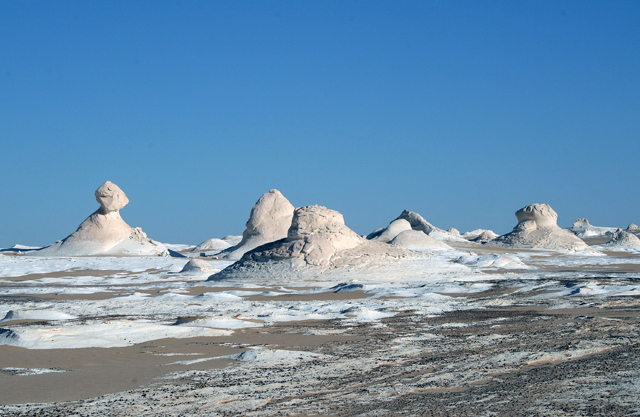WHITE DESERT AND CRYSTAL MOUNTAIN

We work with a material that is appreciated, among other things, for its delicate process of creation lasting for millions of years. We respect this material because each single stone is a small work of art. Our advanced technologies are sometimes nothing compared to what nature can achieve.
Here is one example. The Crystal Mountain will take the breath of many a geology enthusiast away. You don’t see so many and so big calcite crystals every day.


Crystal Mountain is a place in the Libyan Desert, or more precisely in one of its parts belonging to Egypt – the White Desert. The White Desert was formed during the Late Cretaceous period, and the landscape of the area is very interesting. It features large limestone formations – two of which have even been given their own names: the Mushroom and the Chicken.
Crystal Mountain, also known as the Jewel of the Desert, is one of the rarest mountains in the world. It is a mountain full of different crystals, of which there are more than 12 types here. The hill itself is a subvolcanic vault that appeared during the Oligocene period 33 million years ago.
Geologists describe it as an ‘exhumed cave’ – it was probably a cave full of stalagmites and stalactites that was pushed to the surface by the movement of the earth’s crust and lost its cover over time due to erosion.
The exposed crystals have almost faded and studies have shown that they are not quartz crystals. They are probably barite and calcite crystals.
The site had been known to the local inhabitants for years, and had unfortunately been destroyed by them as they collected rock material for building roads. On top of that, tourists started to appear, eager to collect souvenirs. However, Egyptian scientists realised the uniqueness of the place and for several years the area has been protected.
It is not easy to visit this place as there are no towns in the area. Special tours are organised for those willing to visit, though.
Source: Kurier Kamieniarski
Author: Kurier Kamieniarski | Published: 21.12.2020
